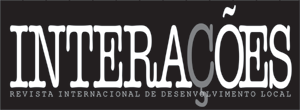Abstract
The present article assesses modeling methodology, as a communicative tool to systematically work on the perception of family farmers about the ecological and productive potentialities and weaknesses of their agroecosystems, based on the analysis of production systems with an agroecological and conventional basis developed in mountain environments It starts with a general characterization of the local environmental and productive context, and then, based on a participatory survey with farming families, establish the modeling of four agroecosystems, with two in Brazil and two in Argentina. Modeling made it possible to analyze the socio-productive context of farming families in montane environments in both countries, from the economic and ecological flows in their agroecosystems, identifying opportunities and restrictions, in their production units, for the insertion of agroecological practices associated with strategies of economic reproduction, historically constructed in the local sociocultural context, having as a base the analysis of the relationship between the determining variables for the adopted strategical decisions. The agroecosystems analysis methodology represents an important instrument for dialogues, researches, and actions for the sustainable rural development of mountain regions, and contributes with subsidies for public policies, as well as the elaboration and implementation of social and environmental projects with a focus on family farming and agroecology.
Keywords
systemic focus; sustainability; production systems

 Thumbnail
Thumbnail
 Thumbnail
Thumbnail
 Thumbnail
Thumbnail
 Thumbnail
Thumbnail
 Thumbnail
Thumbnail
 Thumbnail
Thumbnail
 Thumbnail
Thumbnail
 Thumbnail
Thumbnail
 Fonte: Pesquisa de campo.
Fonte: Pesquisa de campo.
 Fonte: Pesquisa de campo.
Fonte: Pesquisa de campo.
 Fonte: Pesquisa de campo.
Fonte: Pesquisa de campo.
 Fonte: pesquisa de campo.
Fonte: pesquisa de campo.
 Fonte: Pesquisa de campo.
Fonte: Pesquisa de campo.
 Fonte: pesquisa de campo.
Fonte: pesquisa de campo.
 Fonte: Pesquisa de campo.
Fonte: Pesquisa de campo.
 Fonte: pesquisa de campo.
Fonte: pesquisa de campo.